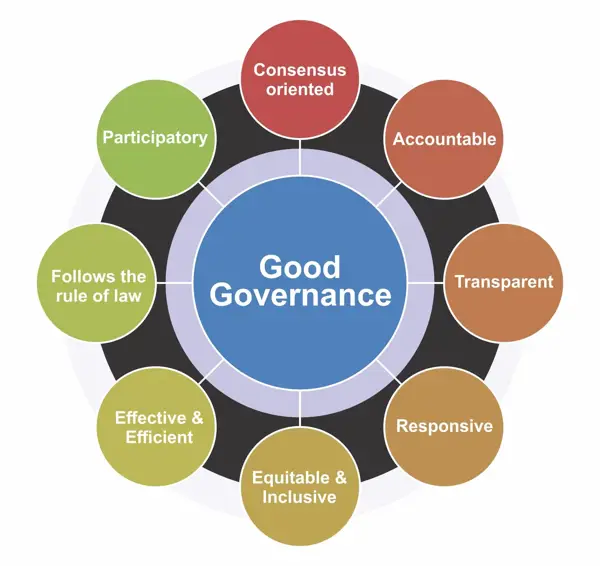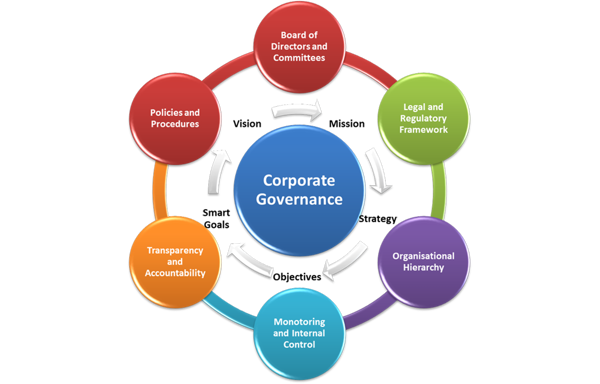Table of Contents
- The Importance of Transparency
- The Role of Board of Directors
- Executive Compensation Practices
- Risk Management Policies
- Regulatory Compliance
- Shareholder Engagement
- Ethical Decision Making
The Importance of Transparency
One of the asian lessons learned the financial crisis is the crucial role of transparency in corporate governance. Companies that are open and honest in their dealings with stakeholders are more likely to earn trust and credibility.
The Role of Board of Directors
The financial crisis highlighted the need for effective and independent boards of directors. Boards should provide oversight and guidance to management, ensuring that the interests of shareholders are protected.
In the wake of the recent financial crisis, the role of the Board of Directors in corporate governance has come under increased scrutiny. The Board of Directors is responsible for overseeing the management of a company and ensuring that it acts in the best interests of shareholders.
Lessons from the financial crisis have highlighted the importance of having a strong and independent Board of Directors. It is essential that Board members have the necessary expertise and experience to effectively oversee the company's operations and make informed decisions.
Additionally, the Board must have a clear understanding of the company's risk management policies and procedures to ensure that appropriate safeguards are in place to prevent future crises. Transparency and accountability are also key components of effective corporate governance, with the Board being responsible for communicating with shareholders and stakeholders to build trust and confidence in the company.
Overall, the role of the Board of Directors in corporate governance is crucial in ensuring that companies operate ethically, responsibly, and in the best interests of all stakeholders. Lessons learned from the financial crisis emphasize the need for Boards to uphold high standards of oversight and governance to prevent future crises and safeguard the long-term success of the company.

Executive Compensation Practices
Excessive executive compensation was a major issue during the financial crisis. Companies need to align executive pay with performance and long-term value creation to avoid conflicts of interest.
The financial crisis of 2008 highlighted the need for improved corporate governance practices, particularly in the area of executive compensation. Many believe that excessive executive pay played a significant role in the risky behavior that led to the crisis. Here are some important lessons learned:
1. Aligning Incentives with Long-Term Performance
One of the key lessons from the financial crisis is the importance of aligning executive compensation with the long-term performance of the company. Incentives should be tied to sustainable growth and profitability, rather than short-term gains that may be unsustainable.
2. Transparency and Accountability
It is crucial for companies to be transparent about their executive compensation practices and hold executives accountable for their performance. Shareholders should have a clear understanding of how executives are being rewarded and be able to hold them accountable if performance falls short.
3. Say-on-Pay Votes
Many companies have implemented "say-on-pay" votes, which allow shareholders to vote on executive compensation packages. This gives shareholders a greater voice in determining how executives are rewarded and can help to align incentives with shareholder interests.
4. Risk Management and Clawback Provisions
Companies should also implement risk management strategies to prevent excessive risk-taking by executives. Clawback provisions, which allow companies to recover compensation in the event of misconduct or poor performance, can help to discourage reckless behavior.
5. Diversity and Inclusion in Executive Compensation
Lastly, it is important for companies to consider diversity and inclusion in their executive compensation practices. Research has shown that diverse leadership teams can lead to better decision-making and performance, so companies should strive to create more inclusive compensation practices.
In conclusion, the financial crisis of 2008 underscored the importance of sound executive compensation practices in corporate governance. By aligning incentives with long-term performance, increasing transparency and accountability, implementing say-on-pay votes, managing risks, and promoting diversity and inclusion, companies can help to prevent future crises and build more sustainable businesses.

Risk Management Policies
Poor risk management practices contributed to the financial crisis. Companies should have robust risk management policies in place to identify and mitigate potential risks.
Risk management policies play a crucial role in corporate governance, especially in the wake of the financial crisis. These policies help organizations identify, assess, and mitigate potential risks that could negatively impact their operations.
Lessons learned from the financial crisis have emphasized the importance of robust risk management practices. It is essential for companies to have clear policies in place to address various types of risks, such as market risks, operational risks, and compliance risks.
Effective risk management policies not only protect the organization from financial losses but also help maintain stakeholder trust and confidence. By identifying potential risks early on and implementing appropriate measures to mitigate them, companies can better weather uncertain economic conditions and prevent future crises.
In conclusion, incorporating strong risk management policies into corporate governance practices is crucial for safeguarding the long-term sustainability and success of organizations. By learning from past mistakes and proactively addressing risks, companies can navigate challenges with resilience and ensure sound decision-making.

Regulatory Compliance
Compliance with regulations and laws is essential for maintaining trust and credibility in corporate governance. Companies must stay abreast of regulatory changes and adapt their practices accordingly.
Shareholder Engagement
Engaging with shareholders is critical for effective corporate governance. Companies should communicate openly with shareholders and solicit their input on key decisions.
Ethical Decision Making
The financial crisis underscored the importance of ethical decision making in corporate governance. Companies should prioritize integrity and ethical behavior in all their actions.
Key Takeaways
- Transparency is essential for building trust and credibility.
- Effective boards of directors play a critical role in corporate governance.
- Aligning executive compensation with performance is key to avoiding conflicts of interest.
- Robust risk management policies are crucial for identifying and mitigating risks.
- Regulatory compliance is necessary for maintaining trust and credibility.
- Shareholder engagement is important for effective corporate governance.
- Ethical decision making should be a priority for all companies.
FAQ
Q: What is the main lesson learned from the financial crisis regarding corporate governance?
A: The main lesson is the importance of transparency, effective boards of directors, and ethical decision making.


No comments:
Post a Comment